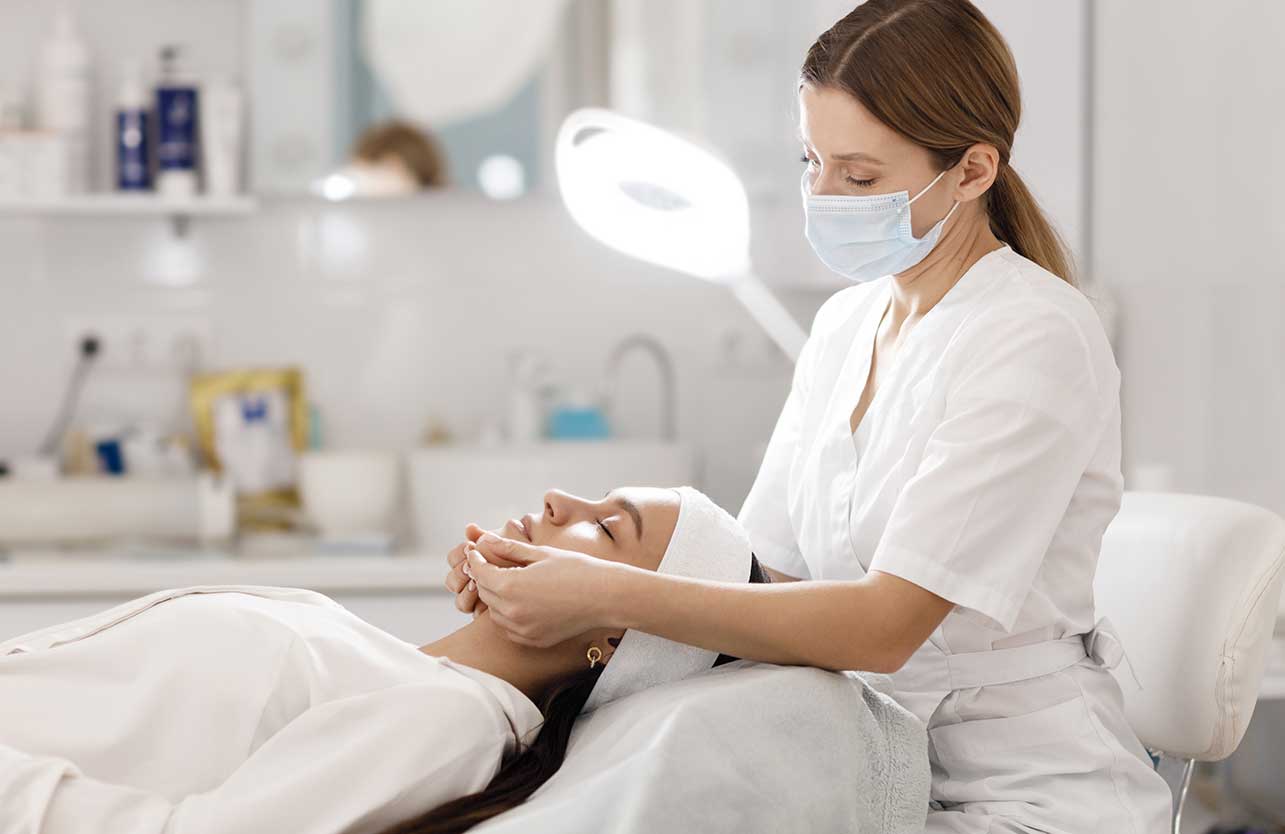What is Medical Skin Care, and How is It Performed?
What is Medical Skin Care?
Medical skin care refers to professional skin care treatments conducted in clinical settings by dermatologists or medical estheticians. Unlike traditional skin care, medical skin care involves personalized, effective, and advanced procedures following dermatological assessments. It addresses issues like aging signs, pigmentation, acne, acne scars, and uneven skin tone.
Procedures Included in Medical Skin Care
Medical skin care typically consists of multi-step treatments personalized according to individual skin type and specific issues:
Deep Cleansing
Initially, the skin undergoes deep cleansing using professional products. Pores are opened, and dead skin cells are removed, allowing the skin to breathe and prepare for subsequent treatments.
Chemical Peeling
Chemical peeling uses specialized acid solutions to exfoliate the skin's top layer in a controlled manner. This process accelerates skin renewal, helping reduce issues like pigmentation, acne scars, and fine wrinkles.
Microdermabrasion
Microdermabrasion mechanically exfoliates dead cells from the skin surface using specialized devices, leaving the skin smoother, brighter, and younger-looking.
Steam Treatment and Comedone Extraction
Steam is applied to open pores, making the extraction of blackheads and whiteheads (comedones) easier. This step helps maintain clear and healthy skin.
Skin Masks and Therapeutic Serums
Specialized masks and serums selected based on skin type and individual needs are applied to hydrate, soothe, and expedite skin healing.
Benefits of Medical Skin Care
- Deeply cleanses the skin, removing dead cells and impurities.
- Tightens pores and improves skin texture.
- Enhances skin elasticity, reducing fine lines and wrinkles.
- Corrects uneven skin tone and reduces pigmentation.
- Effective in treating acne and acne scars.
- Improves overall skin health and appearance.
How is Medical Skin Care Performed?
Medical skin care is conducted in clinical settings by dermatologists or medical estheticians. The first step involves skin analysis, followed by designing a personalized treatment plan. Professional skin care equipment and dermatologically approved products are utilized during the treatment, typically lasting between 45 minutes to 1 hour per session. Depending on the severity of skin issues, regular sessions may be recommended.
Post-Medical Skin Care Tips
Skin sensitivity can occur after medical skin care treatments. Thus, consider the following:
- Sun protection is essential post-treatment; regularly apply high-SPF sunscreen.
- Mild redness or sensitivity is normal and typically subsides within a few hours.
- Avoid hot showers, saunas, and steam baths for several days post-treatment.
- Regularly use skincare products recommended by your dermatologist.
Recommendations from Dermatologist Dr. Ezgi Özkur
Dermatologist Dr. Ezgi Özkur emphasizes regular medical skin care tailored to individual skin needs. She highlights the importance of complementing professional treatments with daily skincare routines for optimal results.

